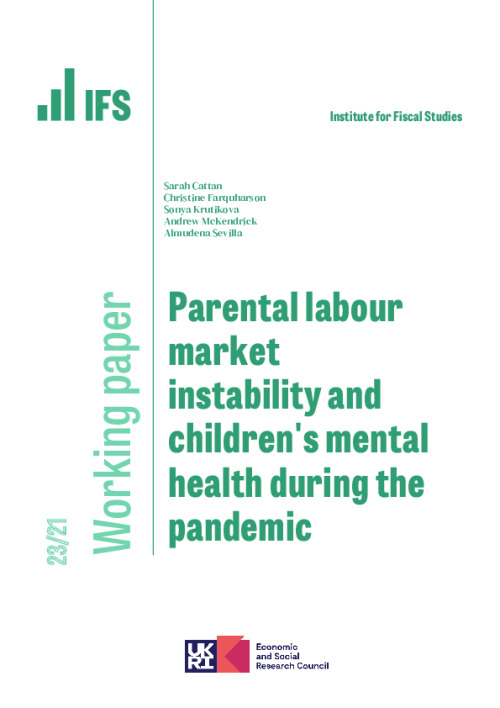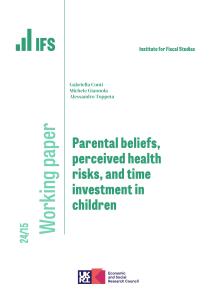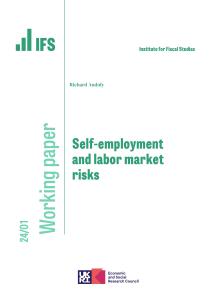Childhood is a critical period for development of mental health: episodes of mental illness during this time often recur in adulthood but early intervention can be highly effective at reducing this persistence. Understanding determinants of child mental health is therefore key for the design of timely effective interventions. In this paper we study the impact of the COVID pandemic on the mental health of school-age children in England. We focus on how the significant pandemic induced disruptions to parental employment affected children and through what mechanisms, using unique nationally representative data we collected. We estimate an augmented Value Added model accounting for potential measurement error in child mental health scores. We find that changes in parental labour market circumstances over the course of the pandemic had a significant and negative impact on children’s mental health of around 9% of a standard deviation equivalent to around 30% of the total average decrease in mental health in our sample over the course of the pandemic. Granular data on labour market experiences over the pandemic shows that it was stability of parental labour market trajectories that was key for child well-being. Mechanisms for the adverse impact of disruptions are likely to include negative impacts on actual and expected household economic situation as well as on parental psychological well-being.













